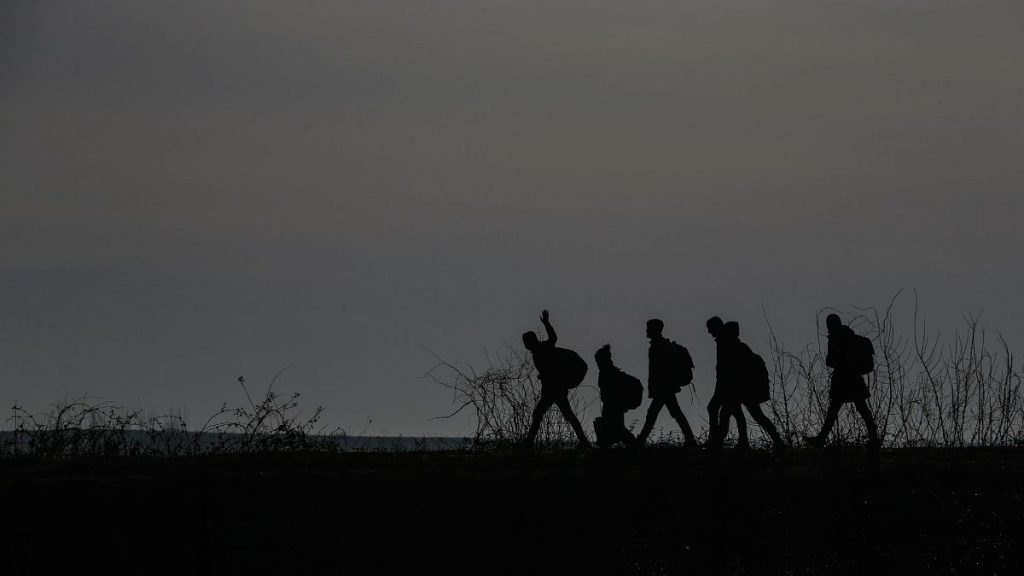The European Court of Human Rights (ECHR) delivered a significant ruling against Greece, condemning the nation’s practice of migrant “pushbacks” – the summary expulsion of individuals seeking asylum – and declaring them unlawful. The case, centered on a Turkish woman identified as A.R.E., found that Greece violated international law by deporting her back to Turkey in 2019 without affording her the opportunity to apply for asylum. This landmark decision has far-reaching implications for European border management, particularly as several EU member states are advocating for stricter immigration controls. The ECHR awarded A.R.E. €20,000 in damages, highlighting the severity of the violation. The court’s judgment emphasized the existence of strong evidence suggesting a systematic practice of pushbacks by Greek authorities along the Evros border region with Turkey. This finding challenges Greece’s persistent denial of such practices and raises serious questions about the country’s commitment to upholding international refugee law.
The ECHR’s ruling comes at a critical juncture in the ongoing debate about migration within the European Union. Greece, along with other member states facing significant migratory pressures, has increasingly implemented stricter border control measures. The justification for these measures often revolves around national security concerns and the need to manage irregular migration. However, the ECHR’s decision underscores the vital importance of upholding international human rights obligations, even in the face of these challenges. The systematic nature of pushbacks, as identified by the court, raises concerns about a potential pattern of disregard for the rights of asylum seekers. This practice effectively denies individuals the opportunity to seek protection and due process, leaving them vulnerable to potential dangers in their countries of origin.
The case of A.R.E. represents a broader trend of alleged pushbacks reported by human rights organizations and international bodies. These organizations have documented numerous instances of migrants being summarily expelled from Greek territory, often with the use of force and without access to legal counsel or the asylum process. These reports depict a concerning picture of human rights violations occurring at the EU’s external borders, prompting calls for greater transparency and accountability from member states. The ECHR’s ruling lends significant weight to these allegations, providing legal validation for the claims of systematic pushbacks. The decision puts pressure on Greece and other EU countries to reconsider their border control practices and ensure compliance with international law.
The Greek government maintains its position that its border policies adhere to international law and denies the existence of systematic pushbacks. Following the ECHR ruling, Greek officials questioned the credibility of the evidence presented and reiterated their commitment to legal and humane border management. However, the court’s findings contradict these assertions, highlighting a discrepancy between official rhetoric and the reality on the ground. The Greek National Transparency Authority, a government-funded watchdog, conducted an investigation in 2022 which, according to the authority, found no evidence to support the claims of illegal deportations. However, this internal investigation has been met with skepticism by human rights groups, who point to the wealth of evidence compiled by international organizations and independent observers.
The ECHR’s judgment has significant implications for the future of migration management within the European Union. The ruling sets a precedent that could influence how other member states approach border control and asylum procedures. It underscores the legal obligation to protect the rights of asylum seekers and refugees, even in situations of increased migratory pressure. The decision may also encourage further scrutiny of border practices in other EU countries where similar allegations of pushbacks have been reported. The ruling strengthens the legal framework protecting the rights of migrants and reinforces the importance of international human rights law in guiding border control policies.
The case of A.R.E. and the subsequent ECHR ruling highlight the complex and often fraught nature of migration management in Europe. The decision forces a confrontation with the difficult balance between national security concerns and the fundamental human rights of asylum seekers. It emphasizes the need for increased transparency and accountability in border control practices, and underscores the importance of upholding international legal obligations. The ruling serves as a reminder that the protection of human rights must remain a central consideration in any migration policy, and that the right to seek asylum is a cornerstone of international law that must be respected by all states. The ECHR’s decision has the potential to reshape the discourse on migration in Europe and push for more humane and rights-respecting border management practices.














